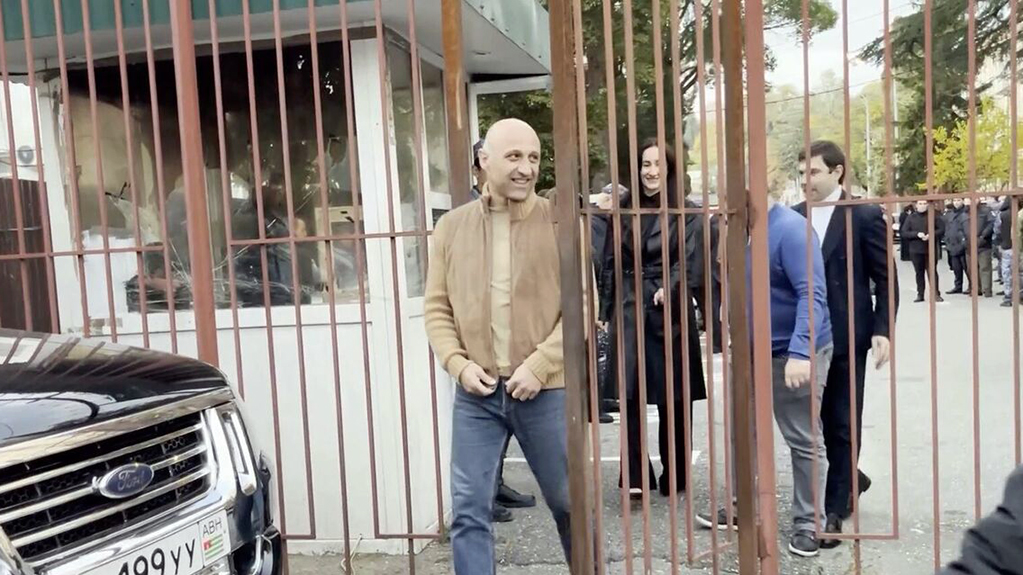In occupied Abkhazia, members of the so-called opposition and their supporters reopened the blocked bridges over the Gumista River after the de facto government released their comrades following negotiations.
News
Aslan Gvaramia, Omar Smiri, Ramaz Jopua, Gari Kokaia, and Almaskhan Ardzinba were arrested on November 11 while returning to Sukhumi from a meeting with the population in Gudauta. According to the so-called General Prosecutor, Adgur Agrba, the detainees committed “illegal actions” against an MP in the Parliament’s yard. Although the de facto government has not named the MP, pro-government Telegram channels report that deputy Alma Akaba was “beaten” during the incident.
Before this incident, an extraordinary session of the de facto parliament was held to discuss the draft constitutional law On the Regulation of the Legal Status of Multifunctional Complexes in Abkhazia.
One of the opposition leaders, former so-called Minister of Economy Adgur Ardzinba, stated that his comrades were defending national interests and were therefore arrested for political reasons.
“We will not only try to secure their release. The agreement they seek to ratify, granting huge benefits to oligarchs and opening the way for the sale of Abkhazia, will be stopped,” Ardzinba said.
Following the arrests of five opposition representatives, their supporters blocked traffic on the Gumista and Kodori bridges. Rallies were also held near Freedom Square and the so-called State Security Service building in Sukhumi. Due to the escalating situation, de facto president Aslan Bzhania convened an extraordinary session of the Security Council.
On November 12, the so-called city court of Sukhumi dismissed the administrative cases against three detainees - Kokaia, Ardzinba, and Jopua - “due to the absence of an administrative offense.” However, the court did not receive case materials for Smiri and Gvaramia.
The de facto government also released another oppositionist, former so-called deputy Tengiz Agrba, who had been imprisoned since November 9.
On October 30, in Moscow, Russia’s Minister of Economic Development Maxim Reshetnikov and Abkhazia’s de facto Vice Prime Minister and Minister of Economy Kristina Ozgan signed an agreement allowing Russian legal entities to implement investment projects in Abkhazia, with specific support measures for these companies. On November 11, the so-called Parliament of Abkhazia adopted a constitutional law to regulate the legal status of multifunctional complexes in Abkhazia as part of this agreement. Aslan Bzhania signed the law on the same day. The issue of ratifying the investment agreement is scheduled for discussion in the so-called Parliament on Friday, November 15. The opposition and their supporters have announced a protest in response.















